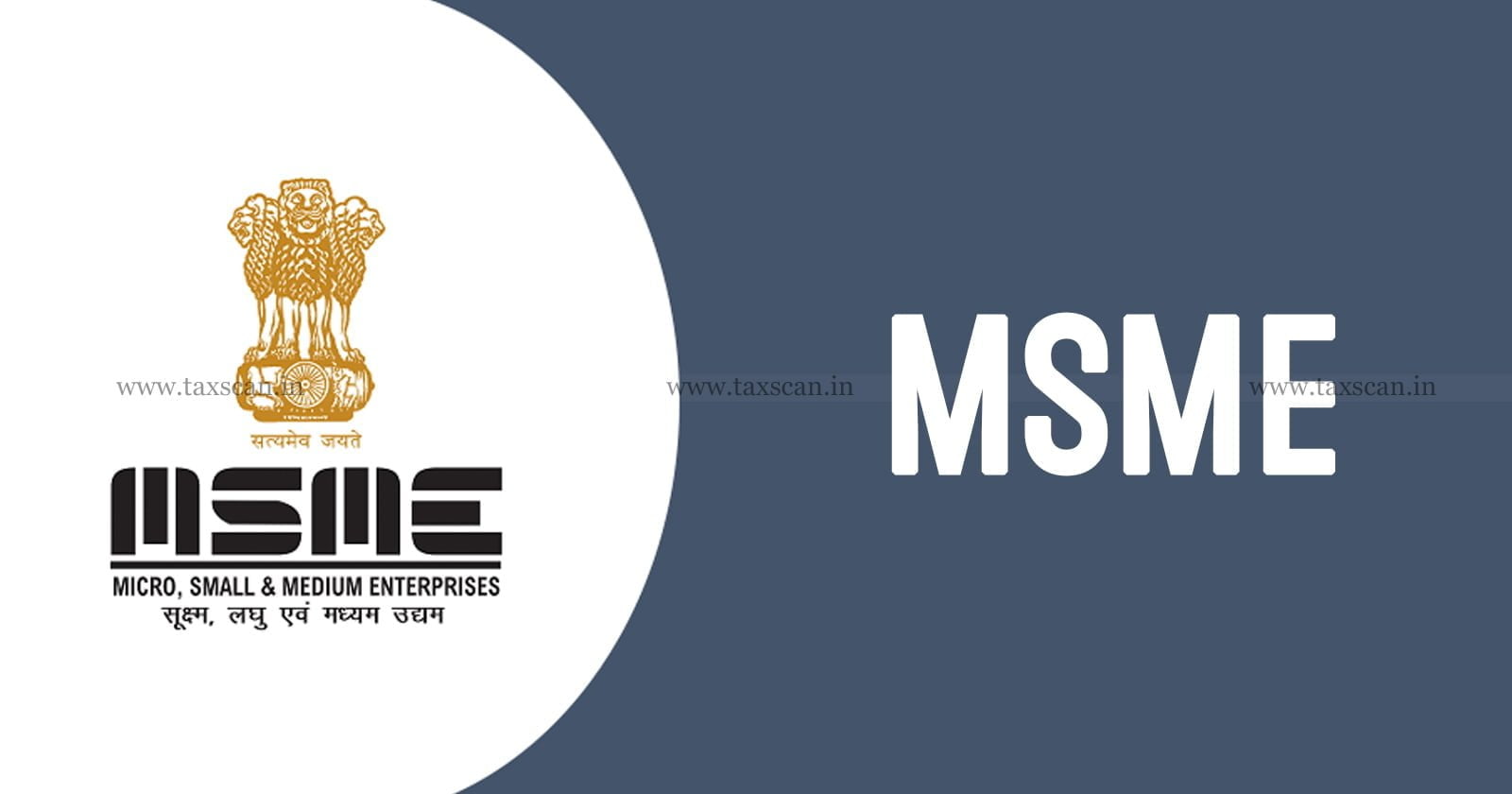Timely Payments to MSMEs: Decoding Section 43B(h) of Income Tax Act
Section 43B(h) reshapes the deductibility of payments to MSMEs. Read on to Know More.

The amendment to Section 43B of the Income Tax Act, 1961, through the Finance Act of 2023, brings forth crucial changes with the addition of clause (h). This amendment aims to streamline payments to micro and small enterprises (MSMEs), ensuring their financial stability amidst potential delays in payments.
Section 43B plays a pivotal role in determining the allowability of deductions on an actual payment basis. It outlines specific conditions under which expenses can be deducted when calculating income from business or profession. Notably, this section does not apply to sums paid on or before the due date for filing income tax returns under section 139(1).
The newly added clause (h) specifies that any sum payable by the assessee to a micro or small enterprise beyond the time limit set in Section 15 of the Micro, Small and Medium Enterprises Development Act, 2006, is eligible for deduction. This deduction is applicable in the previous year when the sum is actually paid.
This section essentially states that any sum payable by a larger enterprise to a registered MSME, beyond the stipulated deadlines, won't be considered a deductible expense in the year the liability was incurred. The deduction can only be claimed in the year the payment is actually made.
MSEs are defined based on investment in Plant and Machinery or Equipment and Annual Turnover thresholds. Investment in plant and machinery and turnover subject to 1/5 crore respectively for micro enterprises and 10/50 crore for small enterprises.
Understanding "Enterprise":
To grasp the implications of Section 43B(h), it is essential to comprehend the term "enterprise" as defined in the MSMED Act, 2006. An enterprise, in this context, refers to an industrial undertaking or business concern engaged in the manufacture or production of goods or providing services. Trading enterprises are not covered by this definition.
Criteria for Micro and Small Enterprises:
Micro enterprises have a turnover limit of Rs. 5 crores, with an investment limit of Rs. 1 crore in plant and machinery. Small enterprises, on the other hand, have a turnover limit of Rs. 50 crores and an investment limit of Rs. 10 crores. The purchase of goods or services from enterprises exceeding these limits is not covered by Section 43B(h).
Applicability to raw material purchases: Section 43B(h) applies only to expenses, not transactions related to the purchase of raw materials.
Outstanding liabilities prior to April 1, 2023: Liabilities existing before the amendment date are not affected by Section 43B(h), even if outstanding on March 31, 2024.
Impact of payment terms on applicability: The deduction under Section 43B(h) depends on adherence to payment terms; any delay triggers deduction in the year of actual payment.
Tax Implications: Non-compliance leads to the amount becoming taxable income for the assessee, with deductions available in the year of payment.
Interest Obligations: Delayed payments incur compound interest obligations to the supplier, with rates linked to the RBI-notified Bank Interest.
Supplier Responsibility: Suppliers must intimate their MSME registration to buyers to avoid disallowance under section 43B(h).
Capital Expenditure Exemption: No disallowance under section 43B(h) for dues outstanding related to capital expenditure.
Exclusion of Traders: Section 43B(h) isn't applicable for dues outstanding to traders as per the MSMED Act's definition of enterprise.
Udyam Registration and Compliance: Enterprises with Udyam Registration must update information on the portal to maintain their status.
The amendment to Section 43B, specifically clause (h), reflects a significant shift in prioritizing timely payments to micro and small enterprises. It is crucial for businesses to navigate these changes carefully to optimize income tax liability and foster a conducive environment for the growth of small-scale enterprises.
Read More: Central Govt notifies Authorization of MSMEs to perform Aadhar Authentication [Read Notification]
However, it is important that we address the other side of the coin as well. “Some Industries have freezed purchase from Micro & Small Enterprises till 31.03.2024.
Some Businesses have Trade cycle upto 6 months also, this is causing them Working Capital Shortage”, CA Akhil Pachori wrote on ‘X’ –
“The new rule for disallowing expenditures 43 B(h) which are supplied or procured from MSME and are not paid within the time limit should be reviewed & relaxed by
1) Extend Time from 45 days to 90 days
2) Allow buyers to make payments till filing of ITRs else
3) Defer provision to next year
Businesses (few) have started restructuring vendors to avoid disallowance under 43 B(h)”, tweeted CA Chirag Chauhan on ‘X’ —
“Msme payment within 45 days will destroy manufacturing industry . It will take minimum 60 days for turning cloth into finished product which are sold at 90 days side to retailers . Please make repayment period 120 days for supply change balance”, stated Rigged Media on ‘X’ —
The recent payment rule alteration for micro and small enterprises ( MSEs ) has left its mark on various sectors. Experts suggest that the central government should permit buyers to execute payments until the filing of returns, aligning with the provisions of Section 43B in the Income Tax Act.
Notably, the textiles and chemicals sectors have borne the brunt of this rule change, potentially hampering their growth. Many buyers might opt for transactions with larger industries to evade the obligatory 45-day payment regulation.
Support our journalism by subscribing to Taxscan premium. Follow us on Telegram for quick updates


